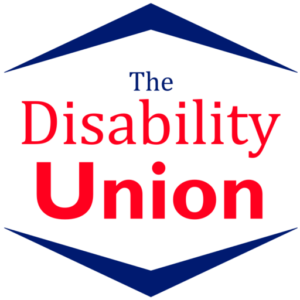
Every disability is different, and therefore different people will need different accommodations in the workplace to do their job successfully. Reasonable accommodation is a topic we’ve previously discussed with regard to how to make your office more accessible. One of the tips given was to let employees work from home if they can, and even listed a few reasons that accommodation might be needed. Another accommodation that came up after that article was that of adjusted start and end times for shifts. In this article, we will discuss why adjusting someone’s schedule can be a reasonable accommodation.
When Might Someone Need an Adjusted Schedule?
First, let me start off by saying that not every person with a disability is going to need this accommodation, just like every person with a disability isn’t going to need braille. Additionally, some people might only need this accommodation for a short time, or at certain points in the year. There are some disabilities that might make starting work at a certain time extremely difficult, or even impossible.
PCA’s schedule
For example, I have a physical disability that requires I have a PCA (short for Personal Care Aide) come into my home and help me get out of bed and get ready in the morning. I get this person through a home health agency. My morning routine, from out-of-bed to out-the-door, takes about two hours. If I need to get up at 6:30am to get to work by 9am, and the agency doesn’t have anyone to get me out of bed until 8am, there’s not a lot I can do.
The home health agency does the best they can staffing the requested hours, but they have more than one client. PCAs usually go from one case to the next, so schedules need to be a bit flexible or I just won’t get out of bed.
Adapted Taxi Services
Another instance for my disability is if my adapted car breaks down and I need to rely on an accessible taxi. Taxi services for wheelchair-users, especially when you’re not in a big city, are far and few between. And, unlike regular taxis, they don’t keep the same hours. Being able to take an Uber or Lyft is probably out of the question as well, because of the lack of accessible vehicles owned by the non-disabled public. Because of the low demand and low supply, and in order to keep these services open, they usually charge a high rate for their services too, making it a last-ditch plan. This is usually a short term need, but can arise at any time.
Public Transport
Lastly, let’s talk about public transport. Some people with disabilities have no other way of getting around than using busses or the subway. Adapted vehicles are expensive, and some don’t have a way of operating them even if they could afford it. While public transportation is an option, and one that most people with disabilities will be willing to use if needed, there are still several factors to consider.
Let’s talk about busses specifically. It can take people with disabilities longer to get on and off the vehicle. While able-bodied people are able to walk on, pay, and sit down in a matter of seconds, people with wheelchairs and other mobility devices aren’t always so lucky. We have to wait for the driver to get out, put the ramp down, get us on the bus, and strap us in. If they’re really fast and there’s no issues, it can take as little as five minutes. From experience, however, there are almost always issues. This slows the bus down and can take them off schedule.
Why Adjustable Schedules are Okay and Good
Now that we’ve talked about why someone might request an adjusted schedule, let’s discuss some of the reasons this accommodation is reasonable:
Adjustable Does Not Mean Less
It’s important to state that by saying “adjustable schedule” we’re not necessarily saying “less hours of work.” Rather, adjustable schedule is changing when those hours are. Think of it this way: Rather than utilizing sick days and not coming to work, your employee is trying to work with you and make everyone happy and get their job done. They’ll still put in their required time, it just might start or end an hour-or-so different than the rest of your office. Who knows? Maybe they can do certain things at their altered time that would be difficult to do otherwise. Do you have clients in a different time zone? Having someone who stays later because of an accommodation can be tasked with communicating with them!
Adjustable Schedules Cost Nothing
Adjustable schedules are also one of the cheapest accommodations you can make for an employee. It costs $0 to tell Mark from accounting that, because of his PCA schedule, he can come in at 10 instead of 9, as long as he makes that hour up.
Why Not?
Sit back and ask yourself, why wouldn’t you allow your employee a slightly altered schedule? After all, your employees are here to work. If they need to do their work on a slightly altered schedule, but can still fulfill all their job requirements — why not? They’re qualified, or they wouldn’t have been hired in the first place. And they want to succeed and do the best job they can.
Hopefully, this article has shed some light on what could possibly be the easiest accommodation to give to someone with a disability. It costs nothing on the part of the employer, and it shows the employee you care about them and want them to succeed. Accommodations like this aren’t always necessary, but when they are they’re usually vital to an employee’s success.


